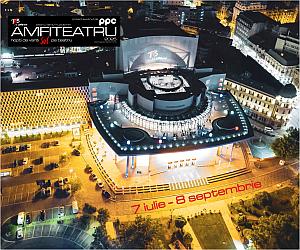At a critical moment in the conflict in Ukraine, Donald Trump re-emerged on the world geopolitical stage with a statement that shook both European capitals and strategic analysis offices in Moscow: "if Vladimir Putin does not accept a ceasefire in 50 days, 100% tariffs will be imposed on all Russian goods.” A message that appears firm, but is deeply laden with ambiguity, reflecting the well-known political style of the American president. As the American publication The Wall Street Journal noted, "the best news from the White House is that the free world will continue to arm Ukraine against Mr. Putin's destructive actions... 50 days is too long for Mr. Putin, who may think that Trump is not really serious.”
This statement, far from being an act of war, is more in the register of Trump's typical negotiation tactics: a mix of threats with deadlines and calculated retreats. The French daily Le Monde noted with irony yesterday that "Trump admits failure in the war in Ukraine, promises weapons to Kiev and sanctions to Moscow", and behind this change of tone, many analysts identify a forced reassessment of a failed strategy. The news website Politico perfectly summarizes the essence of this approach: "any additional sanctions against Russia will be decided exclusively at his discretion, which underlines what his advisers call his main goal - to maintain maximum flexibility and full control over foreign policy vis-à-vis the Kremlin". In reality, Donald Trump is trying to maintain the appearance of a mediator, without getting involved head-on. As Fyodor Lukianov, editor of the magazine "Russia in Global Politics,” explained yesterday, quoted by the Russian daily Kommersant, "Donald Trump does not want to become a party to the conflict; he promises tariffs, not sanctions, and he does not even send the weapons directly, but through Europe, at the expense of the Europeans. In the eyes of the American president, this is not a direct confrontation, but pressure aimed at forcing negotiations.” From this perspective, Trump seems to be adopting a strategy of simulating action, without risking real involvement, betting on the image of a determined but rational leader. However, Moscow has not responded well to the pressure exerted by the US president. "It is a form of pressure, and the Russian leadership does not work under pressure,” warned Fyodor Lukianov for the cited source, while Ivan Timofeev, director of the Russian Council for International Affairs, stated: "Trump is disappointed with the dialogue with Russia. Moscow's failure to accept the freezing of the conflict on Washington's terms dramatically increases the likelihood of passing a bill that allows for the imposition of secondary tariffs of up to 500%.
In this scenario, China, India and other states that buy Russian resources would become collateral targets of a global economic escalation.
However, the reality is more complex. As The New York Times noted yesterday, "behind Trump's threatening rhetoric towards Russia lie doubts and a lack of details.” In other words, the American leader is launching strong messages without a coherent plan behind it, betting on the immediate effect of his statements, not on the consistency of his action. Professor Timofei Bordachiov, from the Higher School of Economics, told the daily Kommersant that "Trump is replacing decisive policy with substitutes: he is transferring arms deliveries to NATO, creating a new financing scheme for Ukraine, threatening tariffs, but avoiding irreversible decisions.” The Russian expert argues that we are essentially witnessing a show-off diplomacy that keeps the public's attention occupied but does not bring real solutions.
In this context conceived by Donald Trump, Europe becomes a mere intermediary. "Europe wants to continue the war, it will pay for it,” Maxim Sushkov, director of the MGIMO Institute of International Studies, explained to the quoted Russian source.
The US sells weapons, NATO delivers them, Ukraine fights, and the European continent foots the bill. For Trump, it is a convenient equation that turns military support into a profitable business, while maintaining the political distance necessary to avoid being accused of escalation.
On the other hand, in the Balkans, the president of the Republic of Kosovo, Vjosa Osmani, claims that Donald Trump would have prevented a military escalation of the latent conflict between Serbia and that state, although the special representative of the American president, Richard Grenell, categorically denied these claims, saying that "this is not about recent events, but about the 2020 Washington Agreement”. And this detail only reinforces the image of an administration that juggles public perceptions, rather than concrete actions.
Regarding the above aspects, Anton Grişanov, expert at Diplomatic Academy of the Russian Foreign Ministry, told Kommersant: "Trump is trying to offer a little bit to everyone: Russia - a 50-day pause; Ukraine - promises of weapons; Europe - Atlantic loyalty; states close to the MAGA concept - profit from arms exports, and the US Congress - a signal that its voice is heard. But in reality, none of the actors involved is really satisfied. Russia rejects any ultimatum, Ukraine does not receive decisive resources, Europe is dissatisfied with ambiguities, and American public opinion does not understand why the US president does not deal with real problems.” In the end, Trump seems to have positioned himself, willingly or not, not as a leader of peace, but as a party to the conflict, a piece in a larger game, in which every postponement hides a failure and every threat is, in fact, a tacit admission of political impotence. It remains to be seen what will happen when the 50 days expire. But until then, the whole world is witnessing a geopolitical spectacle where the main actor is always the same - Donald Trump - and the stage, unfortunately, is the entire globe.













































Reader's Opinion